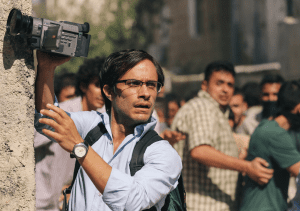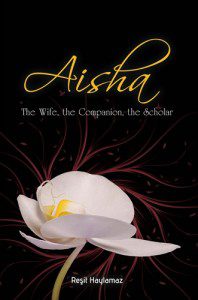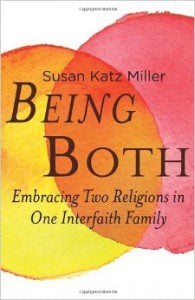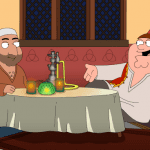 |
|
Nothing to be afraid of
|
It has recently come to the attention of some commentators that Europe and America have become more religiously pluralistic in the last few years. Even though in Europe it was a post-World War II hunger for a new low-cost surplus labor pool that drove this new pluralism, these commentators have come to the conclusion that grave errors were made. They are not happy about what they see as an unfortunate turn of events. In Italy, Oriana Falluci has warned from the steeples about Europe becoming a “a colony of Islam.” In Germany, Thilo Sarrazin now tolls the (eugenic) bell for the intellectual decline of a Heimat flooded with Turks. In Britain, Melanie Philips spies decline and fall in the slivers of a woman’s head covering. Ranging across the continent and globe, American commentators such as Bruce Bawer, and Mark Steyn and Christopher Caldwell mutter darkly around brewing revolution, discerning dire prospects in the darkening visages of Europe.
As troubling as this literature may seem—and I make light of it largely because mockery seems one effective riposte—it is also inflected by a deep and seemingly unwitting irony. These commentators tend to proclaim their embrace of liberal European values, even as they either explicitly or implicitly advance an agenda of exclusion, marginalization, and state-sanctioned discrimination with respect to European Muslims. To these commentators, those who argue that liberal values protect both the Christian and the Muslim are written off as dupes: Islam, that monolith that admits of no refracting gaze, simply cannot be assimilated to the liberal domain. Never mind that the chief attraction of liberalism (at least in the strand best exemplified by the British philosopher John Stuart Mill) is its universalism and its refusal to install arbitrary moral distinctions between human beings. To protect liberalism from itself, for these commentators, means to gut liberalism of the touchstone of its enduring appeal for the marginalized, the despised, and the forlorn.
Although it ought to go without saying that this is several species of rubbish, in one particular way the argument of those decrying the presence and self-assertion of Muslims in the West has failed to attract sufficient critical attention: What precisely does liberalism as a philosophical tradition, or as a political practice, have to say about religious pluralism? After all, the original problem of European multiculturalism was religious pluralism. It was Catholic-Protestant spurring that sucked much of Europe into the maelstrom of the Thirty Years war in the early 1600s. The English civil wars of the mid-1600s also had religious overtones. The violent silencing of dissent, occasionally foaming into and low-level violence, characterized Europe for far longer and at a far deeper level than is commonly admitted.
No one tradition of religious liberty emerges from that history. Thus, when anti-Muslim commentators worry at the integrity of liberalism, and at the threat to it from Islam, they defend a shifting and elusive good. Religious liberty, simply put, means a different thing in different places in Europe. In much of northern Europe, for example, established churches—i.e., with formal affiliations to the state—still exist. Denmark, for example has the Evangelical Lutheran Church of Denmark as its official religious vessel. As sociologist Jytte Klausen has documented, the official church’s dominance over property and customs has sometimes left Danish Muslims struggling over basic matters, such as finding spaces for burial.
In France, most famously, the principle of laïcité is said to compel the state to support no religion and instead to ensure a robust distance between faith and the state. Yet the French state owns and manages church property; it maintains formal institutional structures for the official recognition and representation of faiths (including, since 2003, the Conseil français du culte musulman). And no prizes will be awarded for guessing which faith is fortunate enough to have all its holy days fall upon. Laïcité, French protestations notwithstanding, is heavily accented with the tones of Christianity.
The English situation is somewhat different again. Anthropologist Kate Fox tells a charming anecdote that gets at the function of the Church of England, which is the established church of that nation: Fox recounts having observed a woman and her young child in a doctor’s office, where the mother is filling out a form as the child watches. When they gets to religion, the mother fills in “Church of England”. Puzzled, the child asks why. “That”, explains the mother, “is what people say when they don’t have a religion.”
The story is a bit twee (and perhaps even too neat to ring entirely true), but it encapsulates an important point: The “establishment” of one church in the United Kingdom is remarkably weak one. It is an institutional arrangement that the British had edged, sidelong, into in a Burkean creep, rather than a deliberate choice. And it has endured in part because it has managed to coexist alongside a large postwar decline in religiosity across the British population.
To claim that there is one way of “doing” religious freedom, or arranging relations between faith groups and the state, that is, is simply untenable. The entanglements and estrangements of church and state in Europe are if not as plural as European religions themselves, then close to it. To make a single path of this maze of options is not merely to simplify, it is to falsify. Rather, what is needed in the context of efforts to find new relationships between European Muslims and the states is some recognition of institutional pluralism and contingent. A sense of history and a taste for irony, to be sure, are helpful in navigating these tricky shoals: but that may well be asking far too much of the po-faced Cassandras of “Eurarabia.”
The task of grappling with detail is taken on by a new collection entitled “British Secularism and Religion: Islam, Society and the State”, compiled by Yahya Birt, Dilwar Hussain, and Ataullah Siddiqui. This collection of essays is really two core pieces by Abdullah Sahin and Tariq Modood with responses and counter-responses. It summarizes the contents of a seminar convened in London by the Islamic Foundation and the Markfield Institute for Higher Education in January 2009. Like many such occasional collections, it contains passing insights, delivered like glancing blows, and much throat-clearing. Sahin, for example, begins by usefully distinguishing “secularity,” which is defined as a political commitment to the democratic inclusion of diverse cultures and faith traditions, from “secularity,” which is the effort to corral faith into the private domain. Sahin then develops theological grounds that position. Modood, in a nicely modulated and carefully essay, explains why it is impracticable, as well as unwise, for the state to be entirely disengaged from matters of faith. The essays are complements—touching on theology and political science respectively. Hardly a comprehensive survey of the field, they are nonetheless valuable contributions.
They also suggest a way forward for those seeking to diffuse and heat and light of Falluci, Sarazin et al. It is not by arguments of first principle that their arguments will be rebuffed. Rather, it is by the quieter and less glamorous work of paying attention to the particular folkways in their national context, that progress will be made.
Aziz Huq is an assistant professor of law at the University of Chicago Law School.











